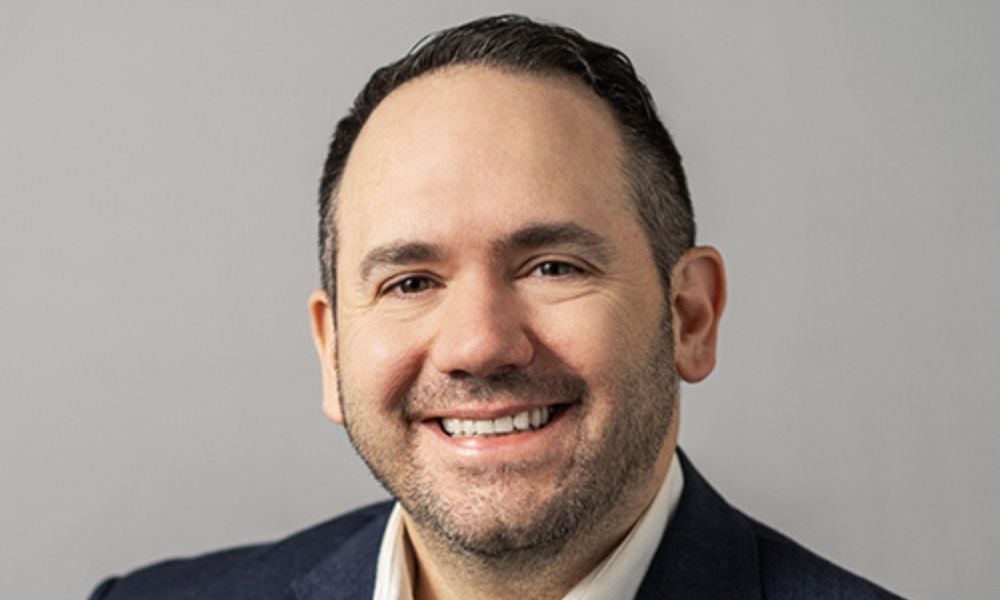
The senior vice president at Opta Group discusses how EQ helps him do his job better

In the ever-evolving world of business law, one often overlooked skill stands out as a predictor of success – a deep understanding of human dynamics. Speaking to Lexpert, Fernando Garcia, senior vice president at Opta Group, says that growing up in a diverse background ultimately led to him honing that attribute.
Garcia joined Opta Group in February after serving as senior vice president, legal and general counsel at Cargojet.
However, Garcia developed a keen sense of how diverse teams can effectively collaborate much earlier, growing up as an immigrant in a multicultural community in Toronto.
"I developed an appreciation and an ability to work within diverse groups,” he says. “That's shaped my own approach to life and how I get along with the people around me – especially when they’re from different backgrounds and have different experiences with education.”
Garcia started with a BA in Labour Studies – a heady mix of economics, management, sociology, psychology and law.
“It gave me an understanding of how all these things come together and shape how we work, how we manage people, how we work within team settings. It gave me an appreciation of the importance of HR, the environment around which business operates and how the legal realm operates. And so, I’ve always appreciated both the people and the business side of things – I bring that to everything I do.”
Delving deeper into the role of in-house counsel, Garcia speaks about the concept of the "plus-shaped lawyer," emphasizing the significance of soft skills such as empathy and relationship-building alongside legal expertise.
“It's all about building relationships, being empathetic,” he says. “That's just as important as being a well-rounded, successful in-house lawyer. That includes data management, the ability to use information, financial information technology, and all those other elements. However, I found that there was something missing – and when I look at the people that I think are the most successful, it's all about personality. It's all about building relationships, about being empathetic. It's about being able to work with diverse cultures and teams.”
This holistic approach helps Garcia define himself as a lawyer – going above and beyond what’s expected of a legal professional and mixing in a sense of empathy, emotional intelligence and people skills. And, in an era where everything is increasingly reliant on technology, keeping that human touch is essential. For Garcia, he believes that tech is vital to augmenting humans in legal services – not necessarily replacing them.
“Legal technology is critical... it helps you do more with less,” he says. “You’re either A, working 24 hours a day or B, using the tools that are necessary to help you do that. Legal technologies are offering a lot of those opportunities and a lot of those initiatives.”
From AI-powered drafting tools to data analytics, leveraging technology enables legal professionals to streamline processes and enhance efficiency. However, Garcia also underscores the importance of understanding the limitations and safeguards associated with these tools to protect confidential information effectively. Reflecting on the globalized nature of this thoroughly modern business, Garcia emphasizes the value of diversity in driving innovation and problem-solving. He likens an international team to an orchestra, where different perspectives harmonize to create a symphony of success.
"The more perspectives you get on [a solution], the more it helps... it's really like an orchestra,” he tells Lexpert. “If everybody played the same instrument, it’d be a very boring session. The beauty of an orchestra is that you have people who play different instruments who have different experiences – someone’s a trumpet, and someone else is the drum. Having a good person to orchestrate it, to know when someone's playing a solo versus when they're playing a rhythm or part of a team, that’ll give you a good quality product – something of real value.”
It's this collaborative approach that Garcia practices daily – especially as the role of GC continues to touch on more areas of the business. Garcia's multifaceted duties, spanning legal, HR, compliance, and beyond, only exemplify the evolving nature of in-house counsel responsibilities in 2024.
“General counsels... have almost like an eagle's eye view of everything that happens... they understand the business at a different level,” he says. “I tend to find HR, compliance, regulatory matters, government affairs, a lot of these are increasingly becoming part of the mandate of in-house counsel and general counsel, because they fit so well in terms of what we do.”